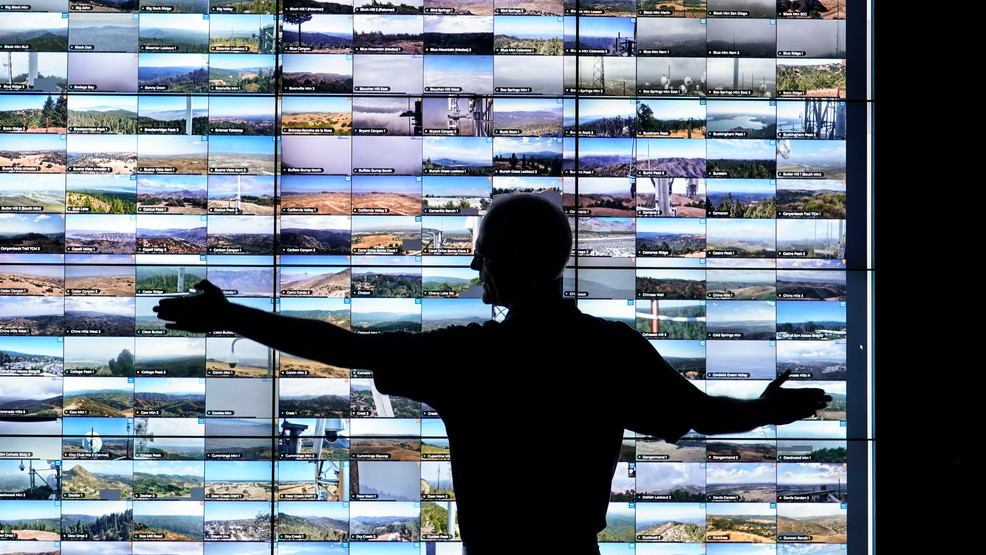
WASHINGTON (TND) — Senators held another hearing on the impact artificial intelligence will have on the future of society and the economy as lawmakers continue their scramble to figure out how to create the first-ever regulations and guardrails for the rapidly advancing technology.
It’s the latest in a series of hearings, panels and briefings lawmakers have gone through on Capitol Hill as they try to bring in industry experts and titans in the technology and business worlds into the fold to help shape regulation.
Artificial intelligence has brought predictions ranging from a multitrillion dollar economic boom to a certain financial crisis as its abilities have rapidly developed over the last several years and its use has become more common. Lawmakers are trying to find the sweet spot where they can maximize the potential it offers for companies to make money and advance the world while trying to prevent some of the worst possible outcomes.
Tuesday’s hearing was focused on how the workforce will be able to prepare the workforce for the future to be able to utilize AI and what oversight might be required to ensure humans are still making decisions for businesses. It comes amid concerns that development of artificial intelligence will eventually lead to people being pushed out of their jobs and replaced with computer programs or robots.
“AI is fundamentally different than all that’s come before, and the impact on the workforce will be different and there will ultimately, in my view, be dislocation on a different level than we’ve seen before,” said Bradford Newman, leader of the AI Practice at Baker & McKenzie LLP and co-chairman of the AI subcommittee for the American Bar Association.
With the potential reshaping of the jobs market in mind, senators on the Health, Education and Labor Committee sought guidance from experts on how Congress can help companies find and train the workforce to utilize the tools to create and enhance jobs moving forward.
“How do we deal with the workforce and how do we look at what it is to be educated and ready to succeed in an AI-dominant economy? We are woefully behind in a number of the policies,” said Sen. Tim Kaine, D-Va.
Senators questioned the witnesses on how they can help create an environment that will not require college degrees or advanced training to help people get qualifications to work the jobs of the future that require using AI.
Multiple of the hearing’s witnesses told lawmakers about efforts their organizations are making to create opportunities for people without a college education, form apprenticeship and internship programs that lead to full-time jobs and how Congress can help make training on using the tech more accessible to workers moving forward.
“When we talk about how you’re going to use AI, if it’s going to be the bedrock of the new economy, that’s both in terms of workforce and entrepreneurship,” Billingsley said. “If we create the correct framework for people to learn, and be trained with AI in the workforce, we’re actually training up some more responsible people who have more fluid skills in terms of AI.”
Congress is trying to balance innovation within the industry with preventing wide-scale harms that could come along with automated decision-making tools that can quickly pile up if widely implemented. Lawmakers have also raised concerns about potential biases that the tools have been shown to display that are difficult for developers to identify the cause of and program out.
Several experts have testified in a series of hearings in front of various congressional committees about ensuring there is human oversight with the use of any artificial intelligence tool to prevent some of these types of issues.
“Is it going to have an impact on the hiring we’re doing? Is it going to have an impact on another part of the workforce? If we understand the outcomes, then we can understand where human judgment comes to play most and we can think about AI as that copilot that allows someone to be more informed in their judgment,” said Josh Lannin, vice president of productivity technologies at Workday.
The hearing comes a day after President Joe Biden signed a landmark executive order to guide the development of artificial intelligence. Under the order, the industry is required to develop safety and security standards, consumers receive new protections and federal agencies across the government were given a long to-do list studying the effects of the tech and preventing worst-case scenarios from popping up and spiraling out of control.
Industry leaders will be in the Senate again on Wednesday as part of Senate Majority Leader Chuck Schumer’s AI Insight Forum as he continues his push to get urgent action from Congress on AI guidelines.
“We must act with urgency, but also with humility, balancing both innovation and commonsense safeguards, because you can’t do one without the other. We must act with urgency because other countries may take a lead on AI, and countries particularly with values we don’t share,” he said on the Senate floor Monday. “But we must act with humility because this is one of the hardest tasks Congress could undertake because AI is so complicated —so far-reaching and changing all the time.”
